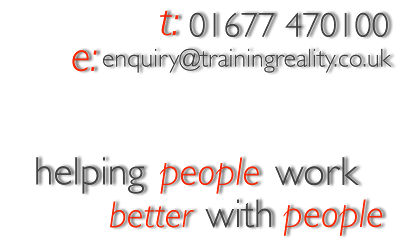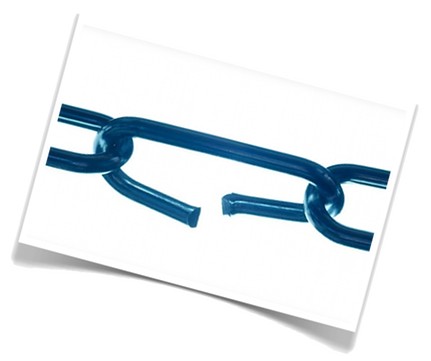Please press (at least!) one of these.
It costs you nothing, and (possibly) helps us spread the word!
Teamwork and trust
Friday, 11 December 2009
Seth Godin’s blog earlier this week was a customer-service related one, and tied into his very insightful approach to marketing and social media. I hesitate to expand directly on his thoughts in this area - it’s not one of particular expertise for me - but the way in which the spirit of openness and active vulnerability can engender trust, respect, and long term effective performance in teams intrigued me.
Seth’s blog was titled “Lead with your glass jaw”, and went as follows:
Here's one way businesses can profit from a social media presence:
Make it easy to get hurt.
If you're in a low trust industry (like car sales), a social media presence dramatically increases the opportunity people have to call you out, beat you up, tattle on you and flame you in public. If you have a Facebook page and people can YELL at you there, for all to see, it makes you vulnerable. Do you really think that a Chris or a Guy or Gary is going to risk ripping you off for consulting or wine? No way. Too easy for someone to post a comeback for all to see.
When your staff sees how much power you've given random consumers, they'll freak. And then, magically, they'll start treating customers differently, because maybe, just maybe, this customer is the one who's going to use the power. Suddenly, the answer to, "do you know who I am!!" is, "yes sire, forgive me."
It might not be comfortable, but you can bet it will build trust.
In essence, by taking the risk of empowering others (customers or clients in the example above) to be able to openly criticise, performance will be improved because the risk of failure is higher. In addition, the customers or clients can feel more comfortable that, because this open environment exists, they will be looked after much better.
From a customer service point of view, this is the difference between the big guy approach (see here) where people think they can hide behind corporate anonymity, and the little guy local approach, where the success of a business depends entirely on the generation of goodwill (see here for an NLP approach to this from Reg Connolly of Pegasus NLP).
--
From a teamwork point of view, I believe this effect can be equally marked, equally risky, and equally effective. The highest performing teams share some common attributes that tie beautifully into this concept of deliberate over-exposure:
Clarity of targets
Woolly words don’t do it for the best teams. Phrasing and wordsmithing objectives and targets so that they are (consciously or unconsciously) open to varied interpretation is simply unacceptable. What the best teams have is an ability to clearly define, share, and be open about what they are after.
Clarity of results
Linked to clarity in target and objective setting is clarity in results. I had a recent, real example of a (rather wordsmithed, but not awful) objective that had been set, and yet, when the results for the year were presented, the obfuscation and confusion was appalling to behold! There was no way that anyone could have any degree of certainty at all as to whether the target had been met or not.
Clarity of responsibility
Finally, the best teams with the best teamwork have enormous clarity in their definitions of roles and responsibilities. People own results, people own performance, and are open about whether they have achieved or not. Hiding behind buck-passing or politics might be effective in the short term, but it will be hugely damaging in the long run.
--
The essential trust aspect of teamwork was covered in an earlier article, which can be found here, and further details of out approach to training teamwork can be found here. Happy reading!
Please press (at least!) one of these.
It costs you nothing, and (possibly) helps us spread the word!



